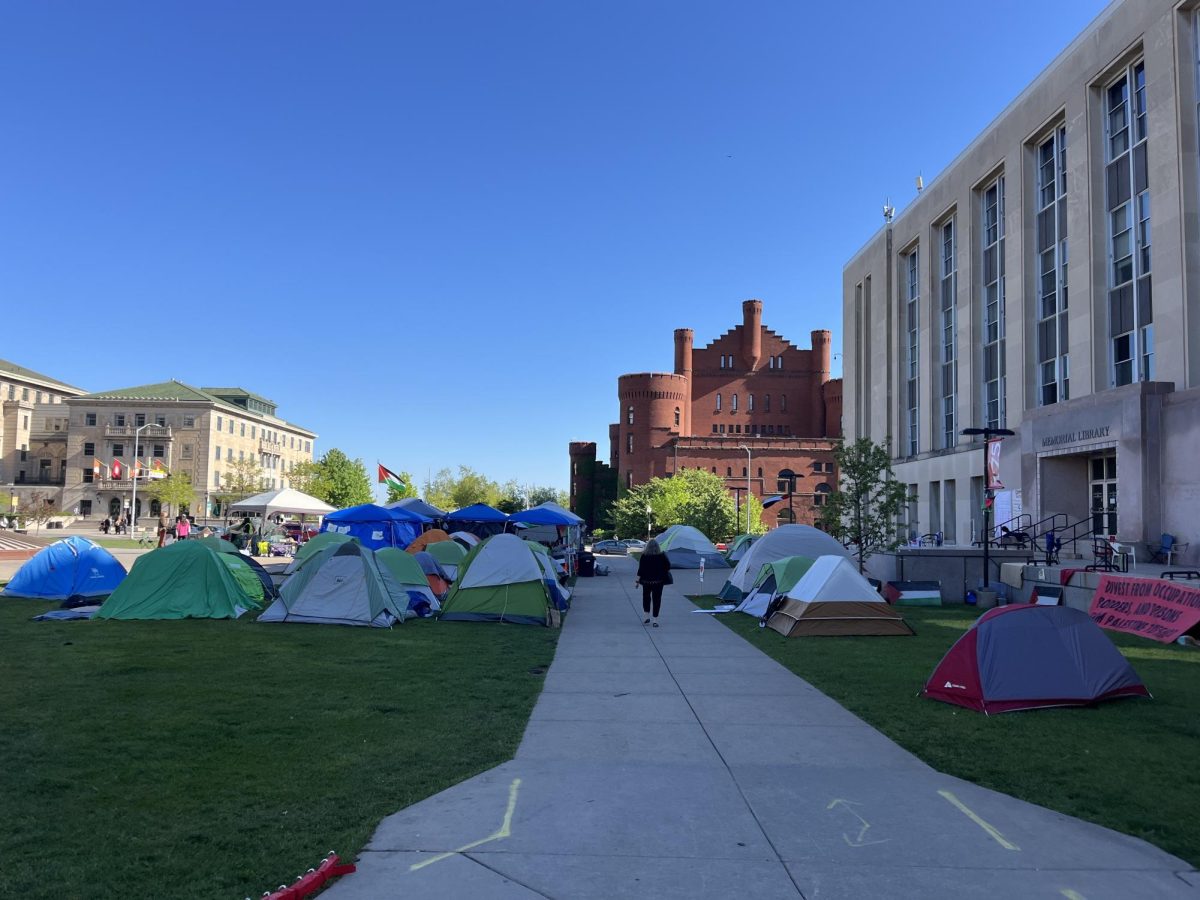As part of an ongoing series sponsored by the Wisconsin Center for the Advancement of Postsecondary Education concerning decreasing funding by states for higher education, associate professor of economics from the University of Maine Philip Trostel spoke at UW yesterday.
Trostel’s lecture mainly dealt with his hypothesis that states nationwide will lose out in the long run if they do not invest more wisely in their universities.
In his lecture entitled “The Long-Term Economic Effects of Declining State Support for Higher Education: Are States Shooting Themselves in the Foot?” Trostel explained to a modest audience of UW faculty and graduate students how it is economically in the best interest of the state to put more funding into their universities.
“If actions speak louder than words, then higher education has become a falling priority for states,” Trostel said.
A reason for such declining state support concerns fears that the college graduates in which states invest will eventually migrate out of the state. It is also a common worry that with an increasing flow of college graduates, not enough jobs will be available for them.
Trostel explained the attainment of college graduates — that is, keeping the graduates employed in the state from which they received their degree — is what pays for states in the long run.
“Calculations [show] an average reduction in unemployment and in spending on welfare and incarcerations,” Trostel said, citing evidence that supports positive outcomes from increasing the number of graduates. “The production of graduates would be an economic —tool for states.”
The lecture also addressed common misconceptions about job availability.
“Graduates go to where the jobs are, and firms go to where qualified graduates are. That’s why you see clusters of technological firms near important universities,” Trostel said, citing Silicon Valley as one such example.
Trostel added that jobs are created all the time, even if it is hard to see their creation and availability.
“Job creating depends on the skills of the workforce,” Trostel said, explaining that qualified graduates will create the supply of jobs and that in this situation, “supply creates its own demand.”
UW graduate student Adriane Williams participated in the question-and-answer session that followed the lecture, interjecting with a political perspective.
“People are largely interested in things they can accomplish during their political tenure,” Williams said, questioning whether Trostel’s beliefs are an attempt to influence the decisions of policy makers.
She added that although direct evidence and figures may not place first among politicians’ concerns, politicians would nonetheless address the issues if they were important to the public.
“If the people who are voting for you are saying that this is worth doing, then [politicians] are more likely to do it,” Williams said, explaining that the information Trostel presented could indeed affect policy change.
Thayer Reed, forum coordinator for the Wisconsin Center for the Advancement of Post-Secondary Education, noted Trostel’s view on the situation of state funding is significant because of the lack of true research on the subject.
“People speak a lot about funding cuts and state budgets, but there is little research on whether post-secondary education should be invested in,” Reed said.










